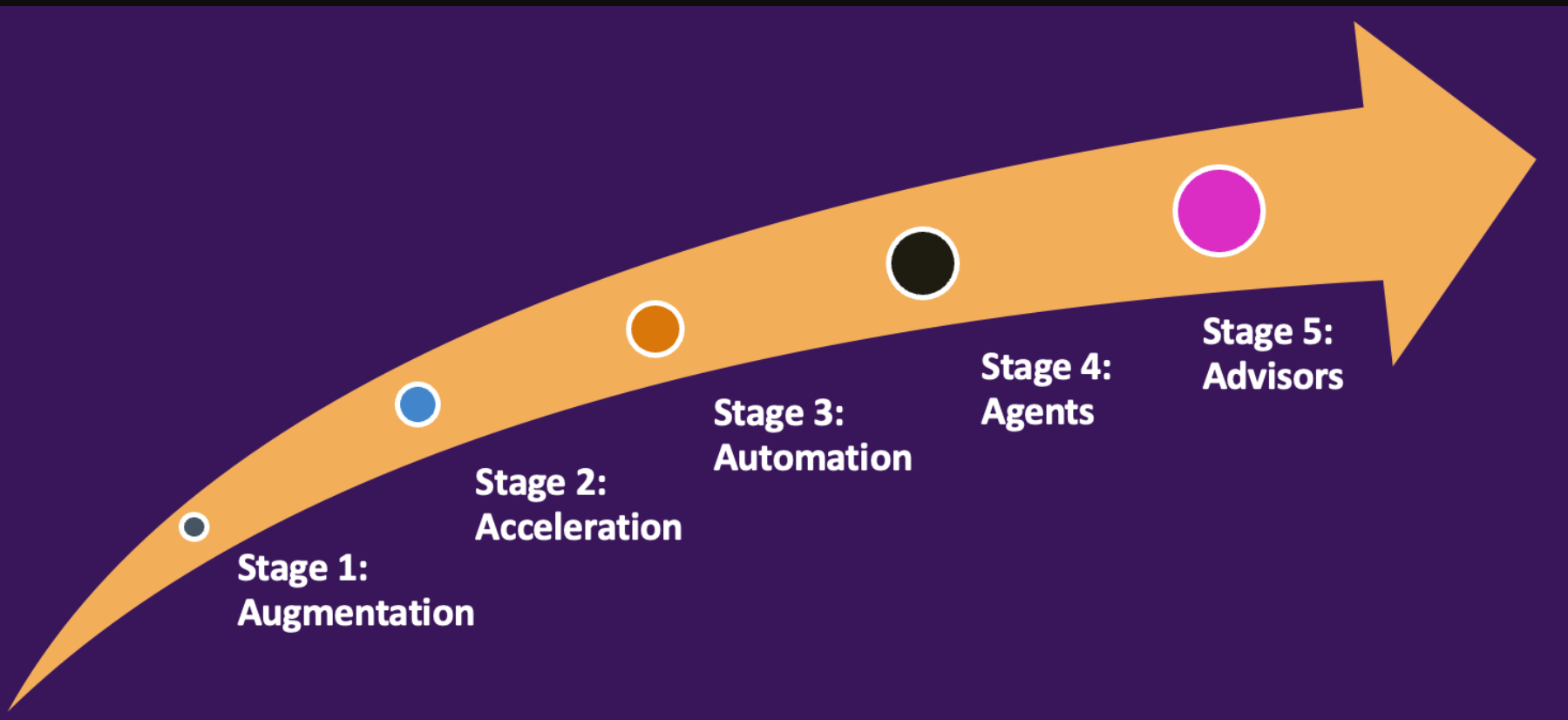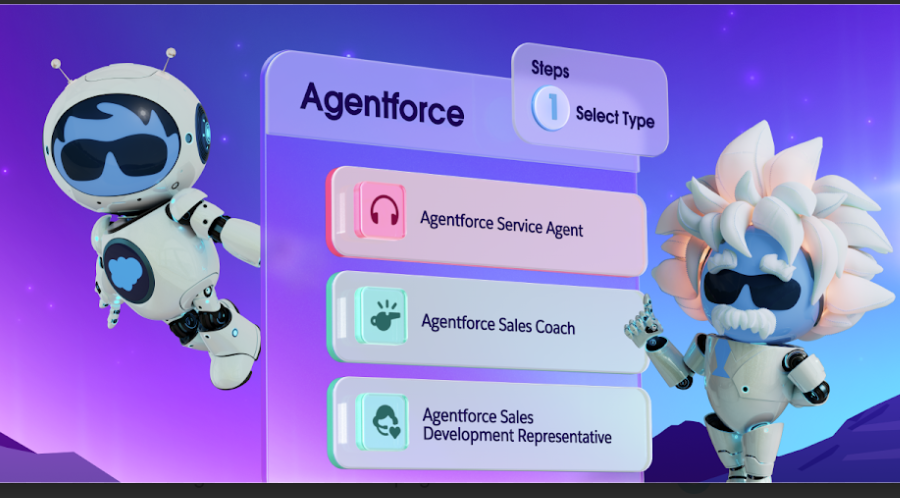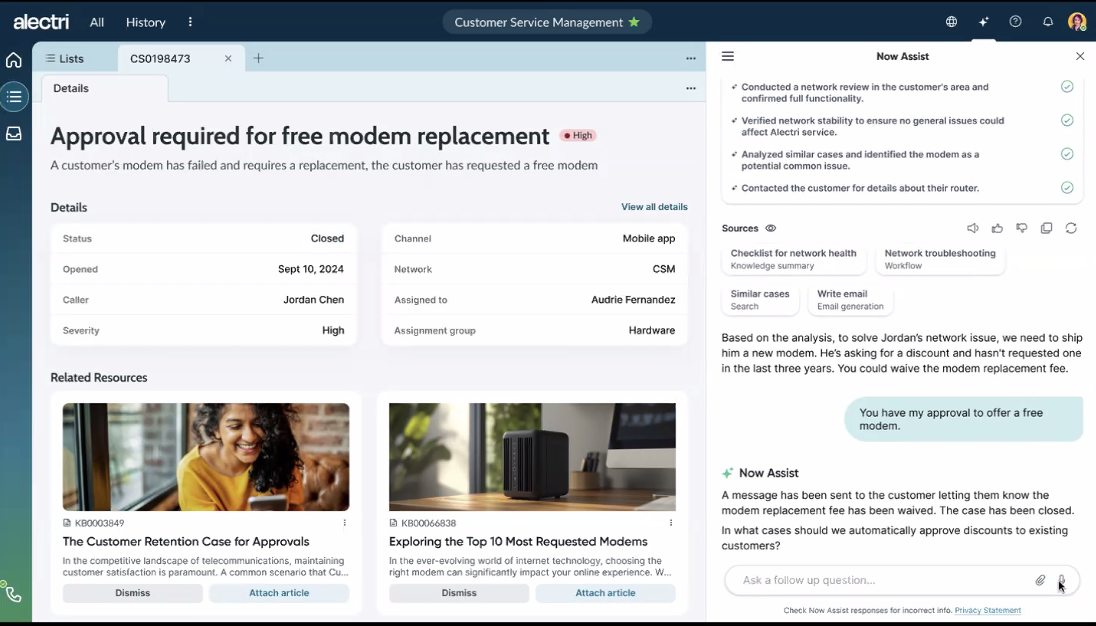Generative AI has been the topic du jour for more than 18 months, but now the baton is going to be handed to agentic AI if Salesforce and other enterprise technology giants have their way.
Salesforce’s Dreamforce conference will be all about AI agents—known as Agentforce—and the company has had a steady drumbeat of news leading up to its flagship conference. Salesforce’s plan is to use Dreamforce to show you what Agentforce can do and reinvent the company as a platform that drives value.
The problem: Salesforce had to move early on its Agentforce news because the AI agent bandwagon was filling up so rapidly. Indeed, ServiceNow has been talking AI agents for months and its Xanadu release of its Now Platform puts agents into production this week. Oracle’s CloudWorld conference this week also included a hefty dose of AI agents across its platform, applications and cloud services. Google Cloud CEO Thomas Kurian also talked about how the company is monetizing its agents.
Speaking of monetization, Salesforce said that Agentforce will run $2 per conversation without volume discounts. To Benioff, the $2 per conversation model is a no brainer since the returns on investment are there. We’ll find out if enterprises agree.
This post first appeared in the Constellation Insight newsletter, which features bespoke content weekly and is brought to you by Hitachi Vantara.
"Dreamforce is really becoming Agentforce," said Salesforce CEO Marc Benioff. "I think this is going to be a moment that everyone is going to have to see in person to understand what is going on.” Salesforce’s plan is to outline Agentforce and then outline a bevy of customers using the technology, which was acquired in the tuck-in Airkit.ai purchase a year ago.
- Salesforce Furthers Autonomous AI Agent Development with xGen Concept & Tenyx Buy (see release on new genAI models)
- Salesforce's New AI Agents Mark Foray into Autonomous AI
In 2024, AI agents came into their own as SaaS providers all worked to make generative AI use cases drive value. Presumably, enterprises will move more genAI pilots to production with the help of agents that can make decisions and automate processes on your behalf. Enter agentic AI.
The term agentic was most likely cribbed by the tech sector from psychologist Albert Bandura, a professor of social science in psychology at Stanford, who died in 2021. In 2001, Bandura wrote Social cognitive theory: An agentic perspective. Annual review of psychology 52. The term agentic has been applied to multiple fields from psychology to education to healthcare to business to portfolio management.

The rough idea behind agentic AI is to create models that can make decisions and act on your behalf. Agents are further along on the genAI progression.
Salesforce is the latest in popularizing agents, but the concept isn’t necessarily in 2024. Enterprise technology companies have been talking up AI agents for most of the year and the term has been floating around for a few years. It’s just now that venture capital will flow into agentic AI in a big way. UIPath CEO Daniel Dines said recent earnings conference call: “To me, an AI agent is basically a robot, if you want, that has some more new skills. And I think there will be multiple type of agents,” said Dines.

In fact, a new category is emerging with purpose-built AI agents for common business use cases. Constellation Research recently published a new ShortList for AI-Powered Virtual SDR Agents – which includes seven startups (and Salesforce) who have emerged with AI agent tools. While big players are getting into the game, smaller players like Qualified are showing promise with their agent roadmaps. Qualified recently added significant email capabilities to its previously chat-only AI SDR this past week.
“You are going to see almost every CRM and CX vendor offering some sort of AI-powered agent tool within the next year or so,” notes Constellation Vice President & Principal Analyst Martin Schneider. “It is the natural evolution from co-pilots; shifting from prompt-based points of insight to semi-autonomous agents that can take action and further along key – yet typically safer or mundane – processes. It is about expanding reach, productivity, and augmenting human capabilities not necessarily replacing them… yet.”

Simply put, the agentic AI bandwagon is already full. Consider some recent headlines:
- ServiceNow's Xanadu release adds AI Agents, RaptorDB Pro, genAI enhancements
- Oracle CloudWorld 2024: Oracle HeatWave Lakehouse, GenAI agents across platform, Intelligent Data Lake
- Nvidia launches NIM Agent Blueprints aims for more turnkey genAI use cases
- Copilot, genAI agent implementations are about to get complicated
- UiPath: Process automation orchestration core of AI agent deployments
- Google Cloud Next: The role of genAI agents, enterprise use cases
- Zendesk acquires Ultimate, builds out AI agent platform
- Boomi melds API management, AI integration via platform updates, two acquisitions
- Google I/O 2024: Multimodal Gemini, Project Astra, AI agents and 'teammates'
You could toss Amazon Q into the AI agent mix, but Amazon Web Services refers to it more of an assistant.
The catch is that the agentic AI we’re talking about today will need to improve dramatically to fully understand and make calls in the real world. You know the drill. First comes the buzzword and then the execution.
Speaking earlier this year at Google Cloud Next, Anthropic CEO Dario Amodei said: "One of my guesses is that if you want an agent to act in the world it requires the model to engage in a series of actions. You talk to a chat bot, it only answers and maybe there's a little follow-up. With agents you might need to take a bunch of actions, see what happens in the world or with a human and then take more actions. You need to do a long sequence of things and the error rate on each of the individual things has to be pretty low. There are probably thousands of actions that go into that. Models need to get more reliable because the individual steps need to have very low error rates. Part of that will come from scale. We need another generation or two of scale before the agents will really work."
Since those Anthropic comments, the company has developed its Claude family of large language models nicely.
Technology has never waited for a buzzword to work before talking about it nonstop. Rest assured, “agentic AI,” “AI agents” and the like will be discussed extensively going forward by enterprise software giants. Why?
AI agents are being pitched by enterprise software vendors because the entire category is going to be disrupted. Everything from the cross-selling of clouds, revenue models (seats to consumption and value) and platforms vs. product lines will need to be rethought. GenAI and AI agents are likely to become the primary user interface to software and that’s going to be a big headache for your go-to vendors.
- Big software deals closing on AWS Marketplace, rival efforts
- Disruption is coming for enterprise software
- BT150 zeitgeist: Dear SaaS vendors: Your customers are pissed
- Enterprise software vendors shift genAI narrative: 'GenAI is just software'
- GenAI may be the new UI for enterprise software
- GenAI boom eludes enterprise software...for now
Insights Archive
- Enterprise security customers conundrum: Can you have both resilience, consolidation?
- Big software deals closing on AWS Marketplace, rival efforts
- Peraton's Cari Bohley: Why internal talent recruiting and retention is critical
- Starbucks lands new CEO from Chipotle: Here’s how digital strategy could change
- Disruption is coming for enterprise software
- Enterprise software vendors shift genAI narrative: 'GenAI is just software'
- The generative AI buildout, overcapacity and what history tells us
- Enterprises start to harvest AI-driven exponential efficiency efforts
- GenAI may be the new UI for enterprise software
- Education tech in turmoil amid genAI: Why consolidation is next
- 14 takeaways from genAI initiatives midway through 2024
- OpenAI and Microsoft: Symbiotic or future frenemies?


